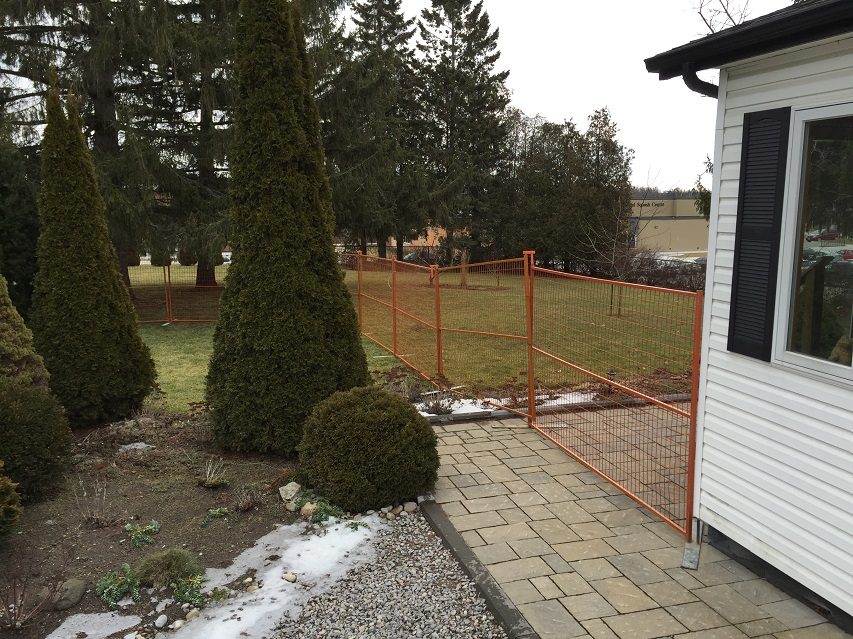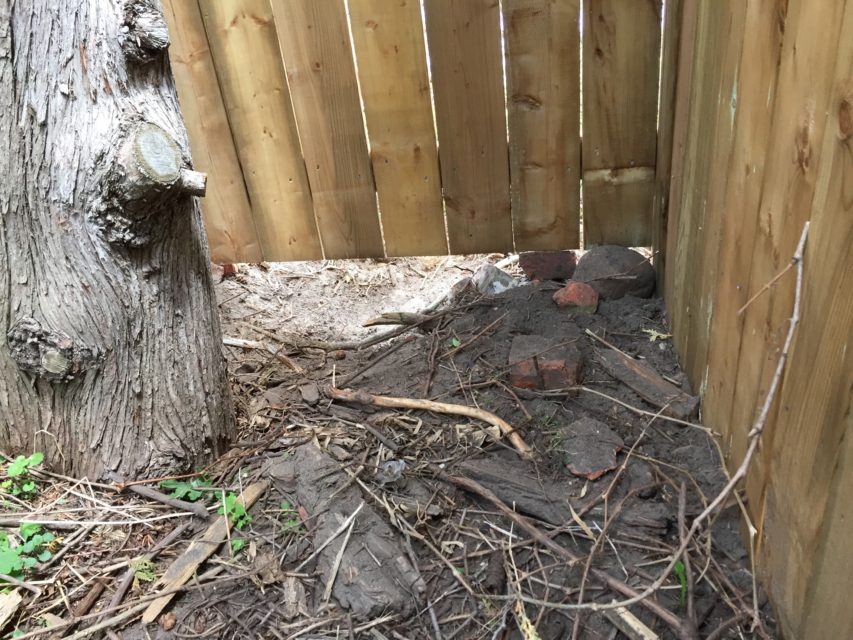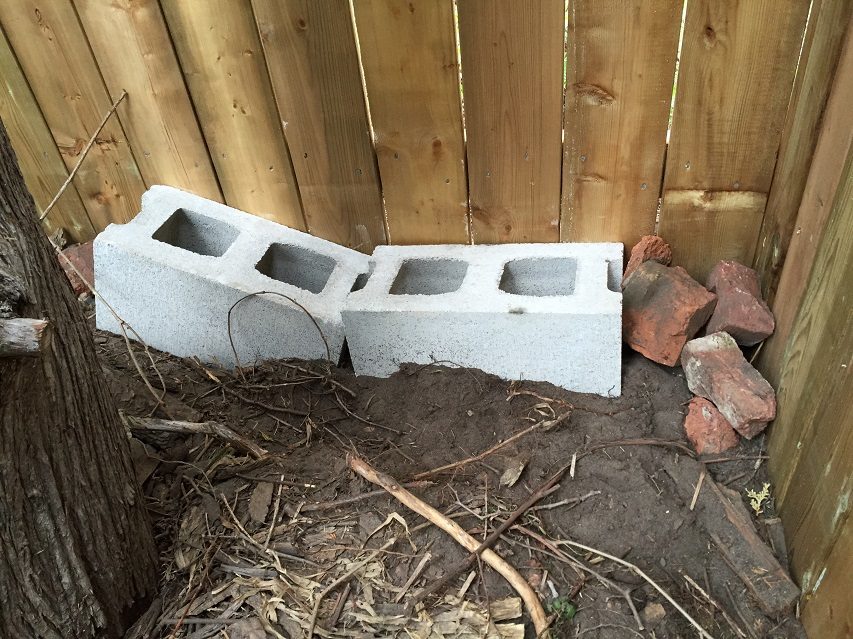We got a lovely new fence installed recently, so we could allow the dogs to roam around the new backyard without needing to worry that they got off the property. In the interim, before the ground warmed up enough to let the fence contractor dig the post holes, we rented some temporary fence panels and had them set up to close off the gap between the house and the garage, creating a small “courtyard” where the dogs were allowed to wander. The new fence was complete at the end of last week, and the rental company picked up the temporary fence on Tuesday.

The temporary fence
This meant that the dogs have been free to roam the full backyard for just about 48 hours.
In that short time, we’ve had three prison breaks.
Now let me emphasize that this is an excellent fence and that we’re overall very happy with the contractor’s work. But as with any defensive fortification, there are weak spots. The gates, for example, are traditional weaknesses, and breakout number two happened when an electrician opened the gate to ask me a question and both dogs bolted past him and out toward the main street.
Breakouts number one and three were tunnelling jobs.
When the fence contractor finished, I had a walk-around the perimeter with one of the workmen specifically looking for spots where an agile and eager dog could manage to squeeze under the bottom of the fence. We found four such locations and additional measures were taken to close them off.
Despite those measures, we discovered that a Corgi-mix dog can be a very energetic digger:

The escape tunnel, cunningly concealed behind a screen of cedar bushes and the trunk of a tree
Additional measures had to be taken, and given that it’s effectively invisible from most of the backyard, brute concrete was considered the most appropriate fix:

We’re hoping this is sufficient discouragement to keep the canines inside the boundary fence…



